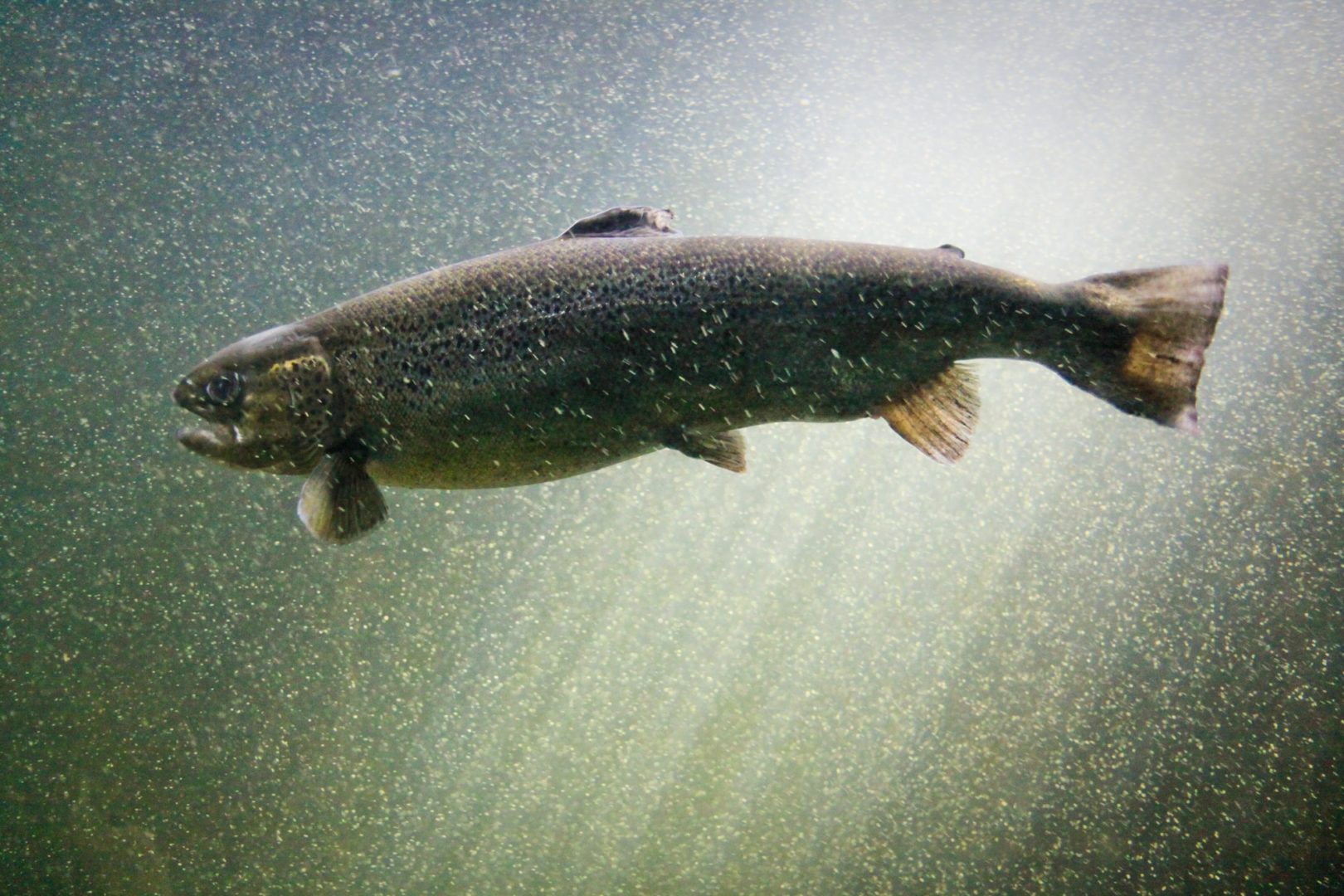Kelly Cove Salmon has been operating unlawfully outside its lease boundaries for almost two decades
HALIFAX, N.S./ TRADTIONAL TERRITORY OF THE MI’KMAQ – This week the Nova Scotia Aquaculture Review Board (ARB) will hear arguments to determine if a lease expansion for Kelly Cove Salmon’s Rattling Beach salmon farm, located in the Annapolis Basin, will be allowed to proceed. Ecojustice will be representing local resident Gregory Heming as an intervenor at the hearing.
For almost two decades, Kelly Cove Salmon has illegally operated outside of its lease boundaries at its Rattling Beach site and four other open-net pen sites in Nova Scotia.
Although Kelly Cove’s lease boundaries at Rattling Beach encompass 8.75 hectares, the company has been operating over 29.08 hectares, an area more than three times the size of their lease and licence. The company has 20 cages at the site, likely substantially more than could otherwise fit within its actual lease area.
Despite concerns voiced by members of the public and local First Nations communities, neither the Department of Fisheries and Aquaculture (DFA) nor the Department of Environment have taken any real action to enforce the lease boundary. Kelly Cove has therefore continued to profit from unlawfully operating in an area three times larger than its lease while facing no consequences.
Approval of the application by the ARB would result in the expansion of the company’s lease boundaries, legitimizing its current illegal operations. This will be the first application for a new or expanded finfish site heard by the ARB, which was established in 2016 following the Doelle-Lahey Report. If successful, this could set a dangerous precedent, as DFA may proceed to refer additional applications to for lease expansions at noncompliant sites to the ARB for approval.
Sarah McDonald, lawyer, Ecojustice said:
“The Government of Nova Scotia has a duty to enforce the province’s existing aquaculture laws and protect the interests of local communities and the environment.
“Both the Department of Fisheries and Aquaculture (DFA) and the Department of Environment have failed to take any meaningful action to enforce the existing lease boundary.
“Instead, DFA referred the Rattling Beach application to the ARB for consideration. This sets a troubling precedent and reflects poorly on the Department’s ability to properly regulate this damaging industry.”
Gregory Heming, literary ecologist (PhD) and writer, said:
“Thousands of Nova Scotians have repeatedly voiced their concerns about Kelly Cove operating outside its lease boundaries at Rattling Beach and other sites across the province. I am intervening because I believe it is critical these voices are considered as the ARB decides whether or not to approve the lease expansion.
“Fish farming is based in a faulty economic model that relies on the destruction of the ecosystem. This issue is compounded when the government fails to enforce environmental protection measures, as it did in this case by not acting to bring Kelly Cove into compliance with its existing lease boundaries.
“It is also important to remember that these industrial operations are taking place on water and lands that we share. We must elevate the voices of affected Mi’kmaw communities when considering industrial activities on their traditional territories and how those activities could potentially impact their Aboriginal and Treaty Rights.”
Background
In May 2013, Nova Scotia issued a moratorium on new open net pen aquaculture sites, and launched a review of the legislation governing aquaculture in the Province. The resulting Doelle-Lahey report (authored by two professors from Dalhousie’s Schulich School of Law) was released in July 2014. While the report did not recommend a permanent moratorium on open net pens, it did call for a fundamental overhaul of the Province’s aquaculture regulations.
The report led to an updated legislative and regulatory scheme governing aquaculture in Nova Scotia in 2015, and the moratorium on new open net pen sites was lifted the following year. Environmental groups criticized the new legislation and regulations for not going far enough to address the concerns raised in the report.
In October 2016, Kelly Cove submitted an application to the Department of Fisheries and Aquaculture (DFA) to expand its lease boundary at the Rattling Beach site. Applicable regulations required the DFA to move the application through the approval process and refer it to the Aquaculture Review Board (ARB) for public hearing. Instead, without announcing receipt of the application publicly, DFA sat on the application for over four years while Kelly Cove continued to operate the site unlawfully.
Outcry from the public and environmental groups has led to mounting public pressure for DFA to step up and enforce the company’s lease boundaries. This includes a demand letter sent by Ecojustice on behalf of various community groups, which received no response.

